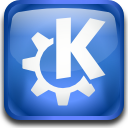CeBIT Open Source Project Lounge -- KDE
KDE -- graphical work environment and applications
ByKDE is among the 15 projects that will present their work at CeBIT, offering the graphical work environment and many applications for Linux users.
Short and sweet: How would you describe your project in one or two sentences?
KDE is a free software project that provides a work environment with many applications relevant to all functional areas as well as a development environment for all the larger platforms. In more than 60 languages, the KDE project provides software today for work and living environments that is easy and intuitive to use.
When did the project begin?
The project was founded in 1996 by Matthias Ettrich.
How many active members does the project have?
Worldwide there about 1,200 active members engaged in programming, building and translating KDE.
How did the project come into being?
On October 14, 1996 KDE's founder Matthias Ettrich entered a comment in the de.comp.os.linus.misc newsgroup about the lack of an easily usable desktop interface for UNIX systems, combined with a call to collaborate on a free software alternative.
Why should a CeBIT visitor come to your booth?
To show that a quality product already exists with an eye to future computing -- powerful, elegant, system-independent and free.
Who do you make your software for?
KDE is targeted equally at enterprises, individual users and developers.
Where do you see your biggest current challenge?
In the transition from KDE 3 to KDE 4, a large part of the KDE framework was totally reworked. The result was that some areas did not inherit the full functionality of KDE 3. The important task for the KDE project is to get this functionality back in.
If you could hire a full-time project developer now, what problem should he or she be ready to solve?
KDE even now runs under Linux, BSD, Mac OS X and Windows. A better integration as well as a porting to further platforms, not least of all for mobile devices, would be an important step to making KDE truly platform-independent.
Under which license is the software currently offered?
The applications are under GPL, whereas the libraries are under LGPL to make it essentially possible to put closed source applications on the KDE platform.
Project website: http://www.kde.org.
Subscribe to our Linux Newsletters
Find Linux and Open Source Jobs
Subscribe to our ADMIN Newsletters
Support Our Work
Linux Magazine content is made possible with support from readers like you. Please consider contributing when you’ve found an article to be beneficial.

News
-
Chaos Comes to KDE in KaOS
KaOS devs are making a major change to the distribution, and it all comes down to one system.
-
New Linux Botnet Discovered
The SSHStalker botnet uses IRC C2 to control systems via legacy Linux kernel exploits.
-
The Next Linux Kernel Turns 7.0
Linus Torvalds has announced that after Linux kernel 6.19, we'll finally reach the 7.0 iteration stage.
-
Linux From Scratch Drops SysVinit Support
LFS will no longer support SysVinit.
-
LibreOffice 26.2 Now Available
With new features, improvements, and bug fixes, LibreOffice 26.2 delivers a modern, polished office suite without compromise.
-
Linux Kernel Project Releases Project Continuity Document
What happens to Linux when there's no Linus? It's a question many of us have asked over the years, and it seems it's also on the minds of the Linux kernel project.
-
Mecha Systems Introduces Linux Handheld
Mecha Systems has revealed its Mecha Comet, a new handheld computer powered by – you guessed it – Linux.
-
MX Linux 25.1 Features Dual Init System ISO
The latest release of MX Linux caters to lovers of two different init systems and even offers instructions on how to transition.
-
Photoshop on Linux?
A developer has patched Wine so that it'll run specific versions of Photoshop that depend on Adobe Creative Cloud.
-
Linux Mint 22.3 Now Available with New Tools
Linux Mint 22.3 has been released with a pair of new tools for system admins and some pretty cool new features.

